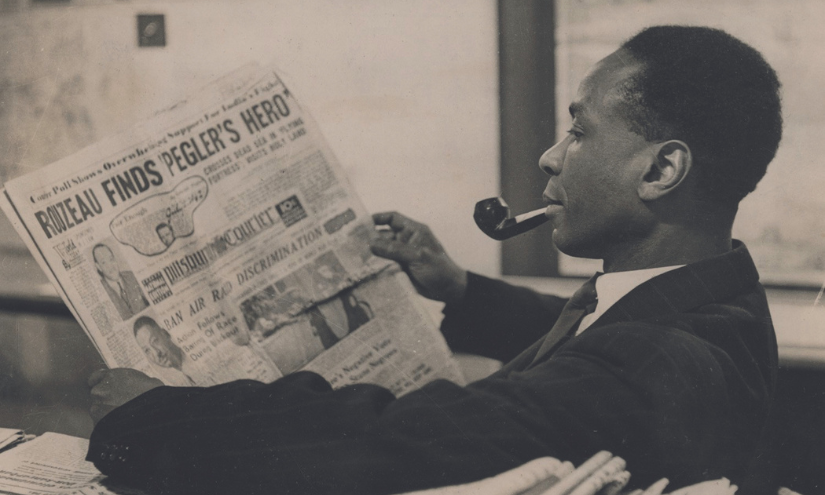Black Radicalism and the British Socialist Movement
“Lines of connection formed between previously disparate activists who were gradually bringing together a world-revolutionary movement.” An excerpt from Making the Revolution Global.

In Making the Revolution Global, Theo Williams centres the entanglements between black radicals and the wider British socialist movement. In doing so, he showcases a revolutionary tradition that, as illustrated by the global Black Lives Matter demonstrations of 2020, is still relevant today.
Readers of the Chicago Defender, picking up a copy of the African American newspaper on Saturday 27 October 1945, were greeted with a notice reminding them to set their clocks back one hour on retiring to bed that evening. Their attention, however, was more likely to be drawn to the banner headline below: ‘Colonials Demand Freedom’. The article, written by the newspaper’s London correspondent, the Trinidadian socialist George Padmore, reported the deliberations and decisions of the Fifth Pan-African Congress, held the previous week in Manchester. The first speech reported by Padmore, however, was not by one of the many leading radicals of Africa and its diaspora present at the congress (who included Amy Ashwood Garvey, W. E. B. Du Bois, Jomo Kenyatta, Kwame Nkrumah and Padmore himself), but rather was by the White general secretary of the British Independent Labour Party (ILP), John McNair.
Born in 1887, McNair was a lifelong socialist activist who had travelled to Barcelona as the ILP’s representative during the Spanish Civil War of 1936–39.2 He told the Pan-African congress delegates that they must ‘battle for complete political independence’. This would be achieved not through ‘trusting the hypocrisy of the British Imperialist class’, who would never voluntarily leave Africa. Instead, the congress delegates must return to their homelands and take their independence through struggle. The pride of place given to McNair’s speech may seem strange, especially to those familiar with much of the historiography of Black radicalism. This moment therefore invites us to consider the histories of Black radicalisms, and the role played by White socialists in constituting global movements against imperialism and racism. This example of collaboration between the ILP and British-based pan-Africanists was in fact a continuation of a deep political comradeship that had developed over the previous decade. Moreover, it was a strand in a larger web of relationships forged between ‘the Black’ (the antiracist and anticolonial movements of Africa and its diaspora) and ‘the Red’ (the international socialist and Communist movements).
From Ireland to India, colonial subjects pressed their desire for liberation with greater force and frequency during the First World War and its aftermath. This compelled metropolitan socialists to consider more fully the ways in which colonialism shaped both their own domestic politics and the global capitalist system. Furthermore, the Bolsheviks, following their 1917 revolution in Russia, vigorously advanced an anticolonialist programme, agitating for an alliance of the metropolitan proletariat and colonial liberation movements to overthrow imperialism. Lines of connection formed between previously disparate activists, who were gradually bringing together, however unevenly, a world-revolutionary movement.
McNair’s speech also invites us to reconsider familiar perspectives on modern British history. Too often, race and empire are deemed niche subjects on the margins of British life. In fact, race and empire have often been central to British political discourse. Britain has been a great power throughout its modern history, and, despite declining influence, remains a major global player. Its citizens have regularly engaged – often critically – with their nation’s role as imperial centre and global power, from the anti-slavery movement of the eighteenth and nineteenth centuries to the huge demonstrations against the 2003 invasion of Iraq.
The history of Britain cannot be disaggregated from the history of empire, or of the rest of the world. It is impossible to tell the story of Britain’s Empire without also telling the story of Empire’s Britain. The confluence between Black radicalism and British socialism allows us to examine one significant way in which race and empire have shaped modern Britain.
[book-strip index="1" style="buy"]
